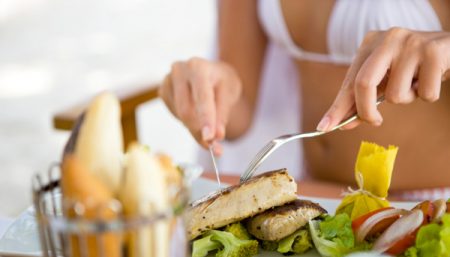Under The Children’s Obesity Clinic’s Treatment (TCOCT) protocol, a doctor has created a plan comprising 15-20 components.

Childhood obesity has become a global epidemic, but it is not easy to treat.
Recently, a Danish paediatrician, Dr Jens Christian Holm, has run a scheme, which he urges other nations to learn from, in confronting the global health challenge. He claims his pilot project has made a significant breakthrough in the battle against childhood obesity.
Research showed that by following the programme, 70% of patients maintained their weight loss for four years. |
The child’s doctor has developed a tailored plan with 15-20 strategies, which could include:
- No crunchy muesli or fruit yoghurts for breakfast – choosing oatmeal, dark brown bread, meat and fish instead. Muesli may be quite healthy but it may also be high in sugar, fat and kilojoules. Fat is added to make it crispy and crunchy during the toasting process. For this reason, toasted muesli is often higher in fat and kilojoules than natural muesli. Same lies true with fruit yoghurt.
- No fast food or white bread for lunch; choose brown bread, meat, fish and vegetables instead. Most junk food is filled with salt, preservatives, saturated and trans-fats. Salt promotes water retention. Trans-fats, such as hydrogenated oils, have no nutritional value and may over the long-term cause chronic health complications.
- Portions served up in the kitchen – no pots and pans at the dining table. One way to keep calories in check is to keep food portions no larger than the size of your fist.
- Plate proportions for dinner should be: half vegetables, a quarter brown rice, pasta or potatoes, and a quarter low fat fish or meat. The eatwell plate highlights the different types of food that make up our diet, and shows the proportions we should eat them in to have a well balanced and healthy diet.

- Wait 20 minutes before having second helpings – this allows time for the body to feel full
- Feel satisfied after each meal
- Only two pieces of fruit per day
- Fast food only once a month
- Sweets only once a week
- Snack only once a week. The choice of a healthy snack involves – variety, balance, and moderation.
- Limit juice, iced tea, cocoa, soda or lemonade to once weekly – only half a litre in total
- Cycle or walk to school
- Organised physical activity e.g. dancing, handball or gymnastics
- Free physical activities like walking/biking after school, walking the dog or trampolining
- Screen time (television, computer or tablet) limited to two hours per day
- No television/computer access until 5pm
- Set a regular, early bedtime. This helps counter obesity by regulating hormones and reducing the urge to eat unhealthily when tired.
In the words of Dr Holm “the programme isn’t easy. But the results are gratifying.”
Source: http://www.bbc.com/news/
Disclaimer
The Content is not intended to be a substitute for professional medical advice, diagnosis, or treatment. Always seek the advice of your physician or other qualified health provider with any questions you may have regarding a medical condition.



